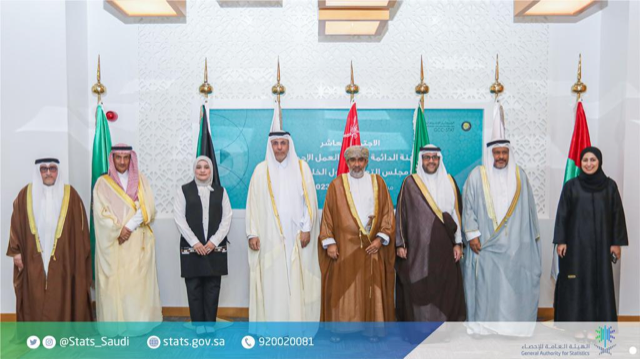
اللجنة الدائمة لشؤون العمل الإحصائي بدول مجلس التعاون لدول الخليج العربية تعقد اجتماعها العاشر في مسقط
The General Authority for Statistics participated in the 10th meeting of the Permanent Committee for Statistical Work, held in Muscat, Sultanate of Oman, with the attendance of heads of statistical centers in the countries of the Gulf Cooperation Council. The committee aims to enhance joint Gulf statistical work, providing statistical data to support development plans and exchanging experiences among member states.
During their meeting, the committee members discussed the continued implementation of the recommendations from the previous meeting held in Jeddah, Saudi Arabia, and reviewed the orientations regarding the Gulf Statistical Work Development Initiative, which aims to enhance cooperation with the Gulf Standardization Organization. They also studied statistical indicators to measure the implementation of decisions by the Supreme Council on the ground. Additionally, they discussed a decision by the Financial and Economic Cooperation Committee to entrust member states with building databases for the common Gulf market. They also discussed global developments and common challenges facing statistical work in the Gulf countries.
Dr. Fahad bin Abdullah Al-Dosari, The President of the General Authority for Statistics and a member of the Permanent Committee for Gulf Statistical Work, presented the experience of Saudi Census 2022 and the phases it went through. He highlighted the integration of administrative data with field data, which contributed to improving the quality of outputs, and the activation of geographic maps. He also mentioned the steps taken by the authority to enhance innovation in statistical work, expand accurate data, and provide open-source data for beneficiaries.
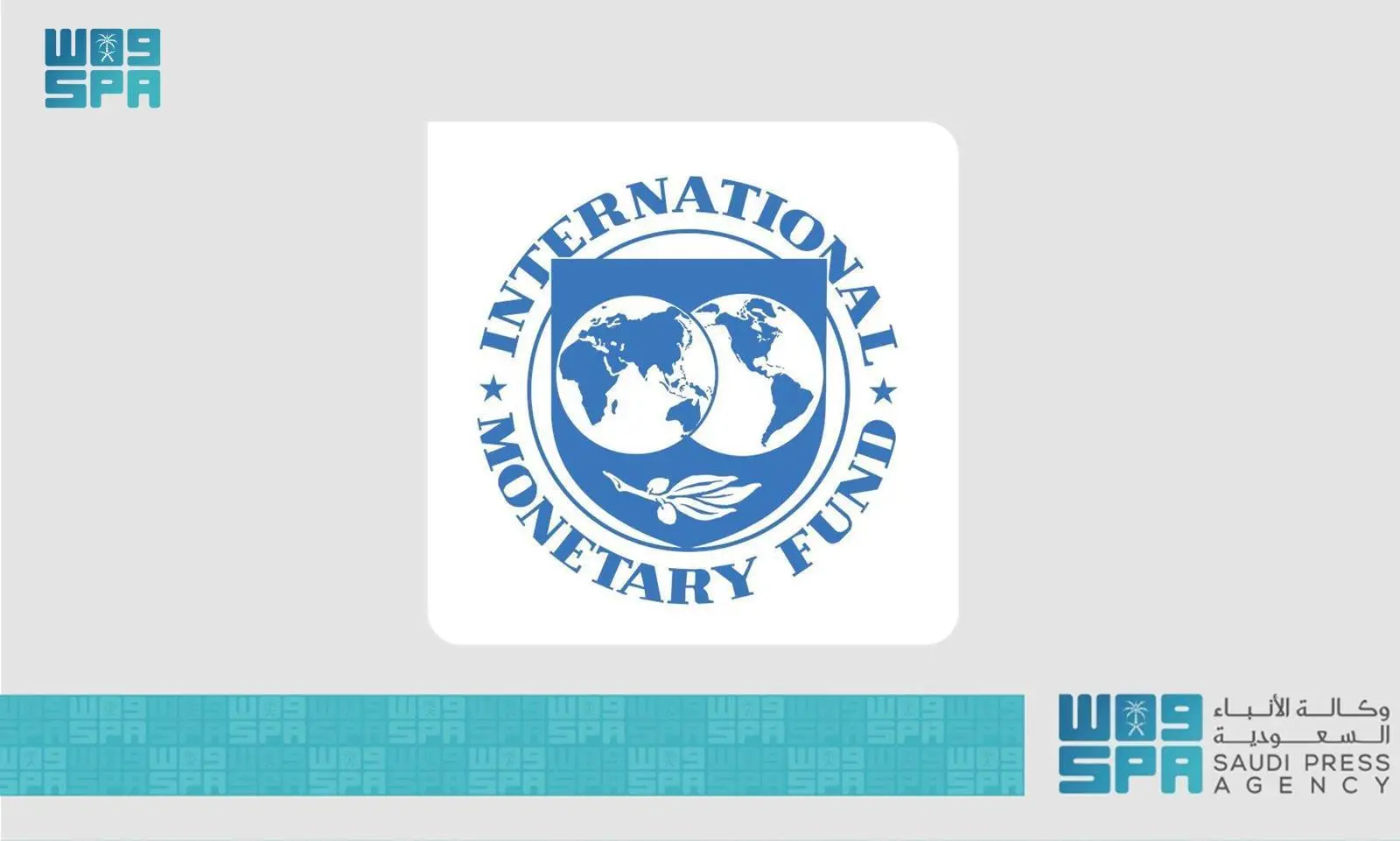
صندوق النقد الدولي: الوضع الاقتصادي والمالي السعودي قوي بسبب الإصلاحات المستمرة في إطار رؤية السعودية ٢٠٣٠
The International Monetary Fund (IMF) issued a positive report on the Kingdom of Saudi Arabia after the conclusion of their 2023 Article 4 Consultation discussions with the Kingdom. The IMF report affirmed that the Saudi economy is in a state of prosperity and growth, and that the Kingdom's fiscal position is strong. The IMF also praised the progress Saudi Arabia has made in implementing its Saudi Vision 2030 reform agenda.
Additionally, the IMF lauded the acceleration of the Kingdom's digital transformation, the increase in female participation in the labor market, reforms in the regulatory and the business environment, ongoing efforts to invest in human capital, and the continuous growth of non-oil GDP.
The report commended the Kingdom's continuing efforts to complete economic and financial reforms and achieve Saudi Vision 2030 targets, noting that the Kingdom was the fastest-growing G20 economies in 2022 with a rate of 8.7%, and with non-oil GDP growing at about 4.8%, while unemployment rates among Saudis declined to their lowest historical level at 8%. The participation of Saudi women in the labor market has reached record levels at about 37% (from 18% in 2017), exceeding the target of 30% envisioned by Saudi Vision 2030. The report also welcomed the ongoing national efforts to enhance women's contribution to supporting the national economy.
In addition, the report praised the Kingdom's efforts to contain inflation that has cast a shadow over the global economy, explaining that it was contained through domestic subsidies/price cap on certain products, as well as the strength of the U.S dollar, which led to the consumer price index (CPI) reaching just 2.5% in 2022. The report noted that although the average index increased in early 2023 to 3.4%, it decreased again to 2.8% by May 2023.
The IMF report emphasized that the continuation of Saudi Vision 2030 reforms represents progress in advancing the country's economic diversification programs to reduce its dependence on oil. It projected a continuation of the strong momentum of non-oil GDP growth, and that average growth will reach 4.9% in 2023, driven by strong consumption spending, increase private investment through projects and programs that enhance the growth of the private sector in addition to the accelerated projects implementation, which will reflect positively on the growth of non-oil GDP, the IMF said.
The report also welcomed the ongoing reform efforts within the framework of the Fiscal Sustainability Program, including improving non-oil revenues, rationalizing spending, and strengthening the public finance framework. It also noted the low and sustainable debt levels and the availability of a strong fiscal space, while praising the remarkable progress in public finance transparency through the expanded budget statement and other detailed reports.
The IMF stressed that the Kingdom's monetary policy (fixed exchange rate) is appropriate and serves the Kingdom's economy, and that the performance of the banking sector remains strong during the current year, thanks to the continuous efforts of the Saudi Central Bank (SAMA) to modernize the regulatory and supervisory frameworks. This contributed to the achievement of high profitability rates (higher than pre-pandemic levels), in addition to high capital adequacy ratios and low non-performing (NPL) loan ratios. The report also welcomed the efforts of the Saudi Central Bank to promote the Kingdom as a fintech hub.
The report praised the continuing efforts by the Kingdom's government to enhance governance, fight corruption, and confront the challenges of climate change. It also praised the plans being implemented to increase renewable energy, the Kingdom's goal to become the largest producer of clean hydrogen in the world, and the tangible role of the Saudi Green Initiative (SGI) in reducing carbon emissions, expecting that these efforts will contribute to reducing emissions to the target level for the year 2030, and indicating that the Kingdom recorded the second-lowest emissions globally per unit produced.
The report noted the positive transformation in the Saudi housing sector through a number of programs that contributed to an increase in the percentage of home ownership to 60.6% in 2022, in pursuit of the Vision 2030 goal of 70% by 2030. It also noted the importance of industrial policies in the success of the Kingdom's efforts toward structural transformation and diversification under Saudi Vision 2030.
With regard to the Kingdom's digital transformation, the report indicated that the Kingdom ranks high in a number of global digitization rankings for example digital infrastructure and the maturity of digital government transformation. Also, the strong digital development in Saudi Arabia has improved financial inclusion, the resilience of the financial sector, and enhanced government effectiveness, pointing out that Saudi Vision 2030 played a pivotal role in accelerating the pace of digital transformation.
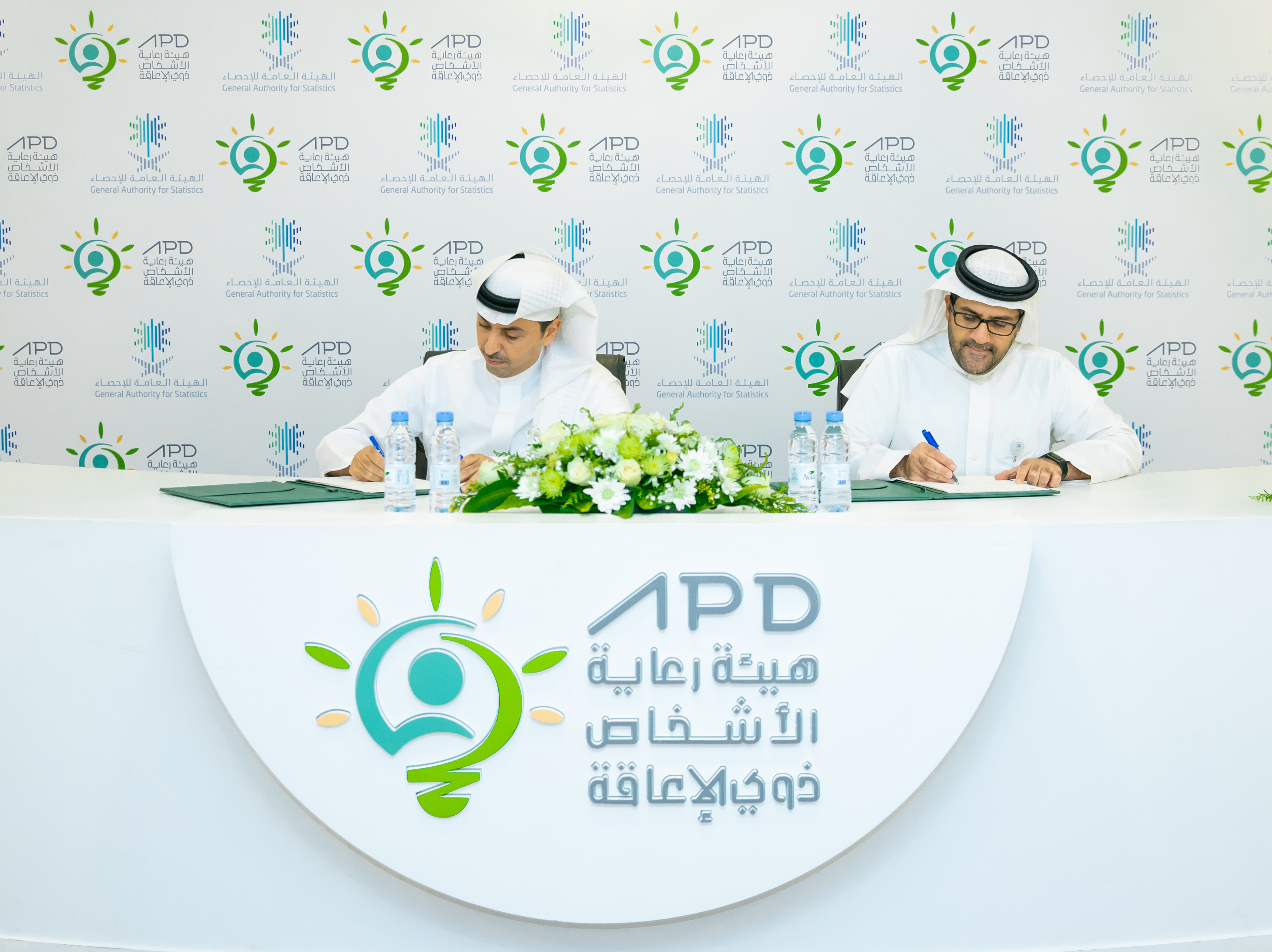
بهدف تبادل الدعم والخبرات الفنية والمعرفية "هيئة رعاية الأشخاص ذوي الإعاقة " توقع مذكرة تعاون مع " الهيئة العامة للإحصاء "
The General Authority for the Care of Persons with Disabilities and the General Authority for Statistics signed a memorandum of cooperation on Monday, 20 Muharram 1445 AH, corresponding to August 7, 2023, in Riyadh. The memorandum aims to enhance the level of joint coordination in the field of statistical data, which contributes to providing data and information and improving the quality of services provided to persons with disabilities, as well as ensuring their necessary care and rehabilitation. The memorandum was signed by Dr. Hisham bin Mohammed Al-Haidari, the CEO of the General Authority for the Care of Persons with Disabilities, and Dr. Fahad bin Abdullah Al-Dosari, the President of the General Authority for Statistics.
The agreement aims to enhance integration between the two entities in achieving the goals of Saudi Vision 2030, through the exchange of relevant official statistics for persons with disabilities. The General Authority for the Care of Persons with Disabilities is responsible for serving them and working towards integrating efforts to improve statistical products for this category. Additionally, the agreement includes providing technical support to the General Authority for the Care of Persons with Disabilities in statistical aspects related to handling and exchanging data and information, issuing reports and publications, and monitoring social variables for persons with disabilities.
It is worth mentioning that the General Authority for the Care of Persons with Disabilities aims to be the comprehensive umbrella for all matters related to persons with disabilities, granting them their full rights and empowering them in collaboration with relevant entities. It seeks to ensure their rights related to disabilities and contribute to enhancing their independence and empowerment through their participation in various activities and full inclusion in all aspects of life, to achieve an inclusive and harmonious society.
To enhance statistical cooperation Organization of Islamic Cooperation Statistical Commission meets in Jeddah
The General Authority for Statistics hosted on Tuesday the 12th Session of the Organization of Islamic Cooperation Statistical Commission in Jeddah, with the participation of 56 countries represented by the heads of the official statistical centers in the member states, and in the presence of six international organizations. The Commission 's meetings will continue for two consecutive days and are organized by the Statistical Economic and Social Research and Training Center for Islamic Countries (SESRIC).
In his opening speech, Dr. Fahad bin Abdullah Aldossari, the President of the General Authority for Statistics, welcomed the participating delegations and expressed his sincere wishes for the success of the 12th session. He also mentioned the efforts exerted by SESRIC to enhance cooperation among Islamic countries in the field of statistical exchange and training, reaffirming GASTAT’s support for all efforts aimed at developing statistical services.
It is worth mentioning that the 12th Session of the Organization of Islamic Cooperation Statistical Commission aims to enhance the technical and scientific capabilities of statistical personnel in the official statistical agencies of the member states, and to exchange statistical experiences and knowledge in order to produce high-quality statistics, guided by specific objectives and principles to enhance solidarity and cooperation among Islamic countries.
The agenda includes several sessions aimed at enhancing the production and dissemination of accurate and up-to-date statistical data and indicators in accordance with internationally recognized methodologies and standards. It also focuses on developing a strategic vision to improve the level of statistical systems and implementing and monitoring short, medium, and long-term plans to achieve this vision, in order to enhance the technical capabilities of national statistical agencies in Islamic countries.
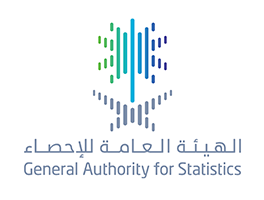
الهيئة العامة للإحصاء: انخفاض معدل البطالة لإجمالي السكان عند 4.9٪ خلال الربع الثاني من عام 2023م
The General Authority for Statistics (GASTAT) issued today, Thursday, 13/3/1445 H, corresponding to September 28, 2023, through its official website www.stats.gov.sa, "Labor Market ؛Publication for the second quarter of 2023."
According to the results of this Publication, the overall unemployment rate (for Saudis and non-Saudis) decreased to 4.9% compared to the first quarter of 2023. The unemployment rate for Saudis also decreased, reaching 8.3% for the second quarter of 2023, compared to 8.5% in the first quarter of the same year. Similarly, the unemployment rate for Saudi females decreased to 15.7% for the second quarter of 2023, compared to 16.1% in the previous quarter. It is worth noting that the unemployment rate for Saudi males remained stable at 4.6% during the second quarter of 2023.
During the second quarter of 2023, labor force indicators showed a decline in the overall labor force participation rate (for Saudis and non-Saudis), reaching 60.8% compared to the first quarter of 2023. The labor force participation rate for Saudis also decreased to 51.7% in the second quarter of 2023, compared to the previous quarter.
The results of the Labor Market Publication for Q2/2023 indicated a decrease in the labor force participation rate for Saudi females, reaching 35.3% compared to the previous quarter. The labor force participation rate for Saudi males also fell to 67.5% during the second quarter of 2023, compared to 68.3% in the previous quarter.
It is noted that the Labor Market Publication, as indicated by the General Authority for Statistics, relies on a household survey conducted by GASTAT under the category of "Social Statistics." It collects information through a sample of households that represent the population in various administrative regions in Saudi Arabia. An electronic questionnaire is filled out, containing a number of questions. Through this survey, estimates and indicators related to the labor force of the population in working age group (15 years and above) residing in Saudi Arabia are provided. It also estimates the population (within and outside the labor force) and calculates the most important labor market indicators, such as the unemployment rate and labor force participation rate, among others.
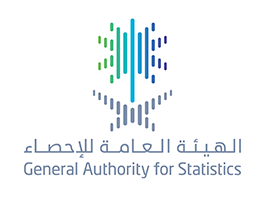
الهيئة العامة للإحصاء:الأنشطة غير النفطية تنمو بمعدل 6.1٪ خلال الربع الثاني من عام 2023م وتقود الاقتصاد السعودي إلى تحقيق نمو قدره 1.2٪
During the second quarter of 2023, the Real Gross Domestic Product (GDP) increased by (1.2٪) compared to the same period of last year 2022. According to GASTAT's estimates in Thursday.
The report results indicated that the non-oil activities registered a positive growth by (6.1٪) during the second quarter of 2023 compared to the percentage registered in the same period of last year 2022. The government activities achieved an increase of (2.3٪) compared to the same period last year. However, oil activities decreased by (4.3٪) in quarter 2, 2023 compared to the same period of the previous year.
The results of the report showed that the seasonally adjusted real GDP decreased by 0.2 % during the second quarter of 2023, compared to the first quarter of 2023.
It is worth noting that GASTAT is the only official statistical reference for statistical data and information in Saudi Arabia. It carries out all the statistical work, in addition to the technical oversight of the statistical sector. It also designs and implements field surveys, conducts statistical studies and researches, analyzes data and information, in addition to documenting and archiving all works of information and statistical data that cover all aspects of life in Saudi Arabia from its multiple sources. Data are written, classified, and analyzed; their indicators are extracted as well.
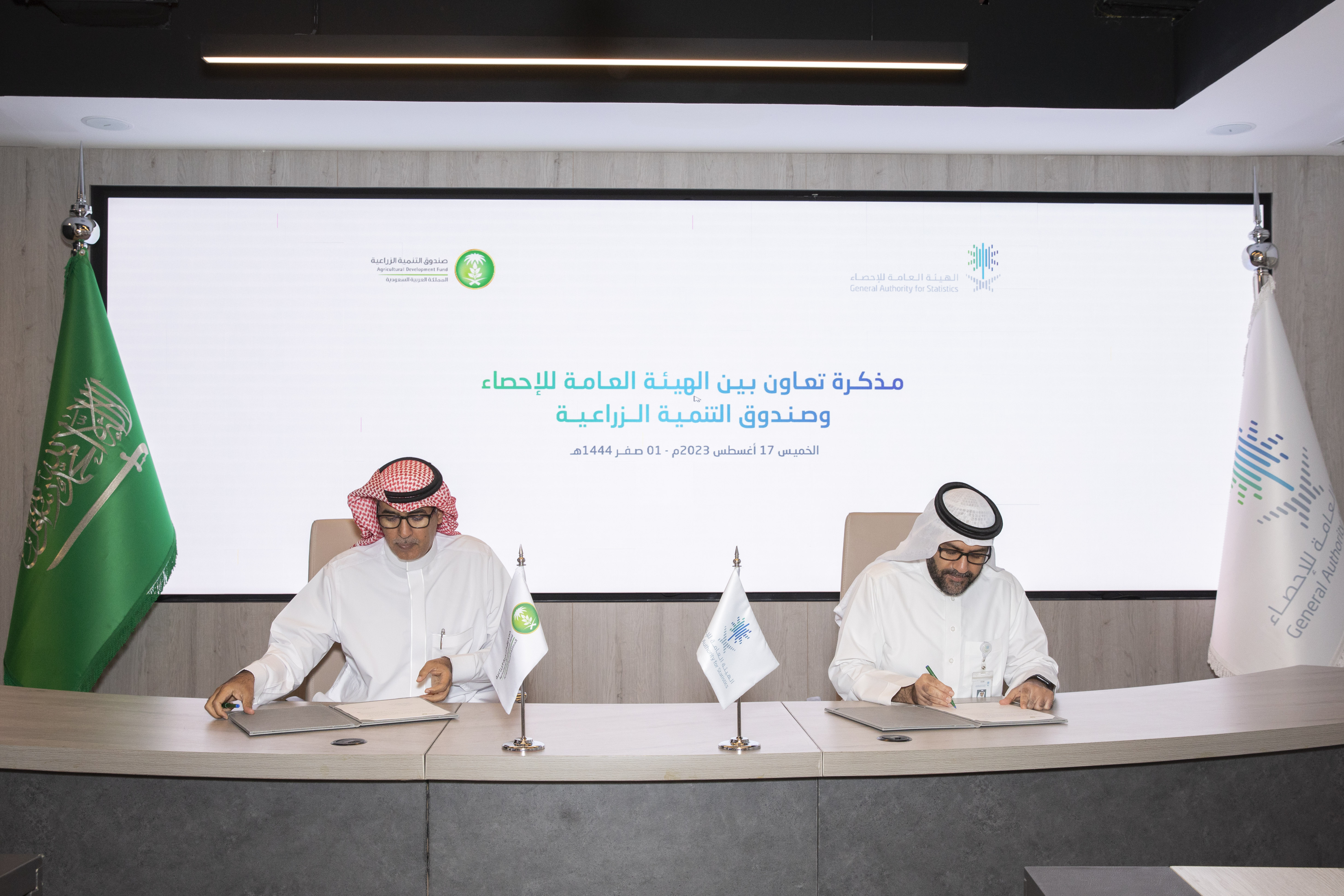
بهدف تبادل الدعم ومشاركة المؤشرات الإحصائية "صندوق التنمية الزراعية " توقع مذكرة تعاون مع " الهيئة العامة للإحصاء "
Agricultural Development Fund and General Authority for Statistics signed today, Thursday, 1 Safar 1445 , corresponding to 17 August 2023, in Riyadh, a Memorandum of Cooperation (MoC) to enhance the level of joint coordination in the field of statistical data, which contributes to providing statistical data and information and integration to achieve common goals between the two parties. The MoC was signed by Mr. Munir bin Fahad Alsahali, Director General of the Agricultural Development Fund and Dr. Fahad bin Abdullah Aldossari, President of the General Authority for Statistics.
The MoC aims to exchange and share statistical data, information and indicators that serve economic activities supervised by the Agricultural Development Fund in accordance with the controls and specifications of data sharing and protection of personal data issued by National Data Management Office.
It is also intended to exchange advice, support, and technical and knowledge expertise in various areas of common interest including research and studies on a regular and continuous basis and to provide the opportunity for employees of both parties to participate in attending developmental courses, seminars, scientific conferences and workshops presented by both parties.
The Agricultural Development Fund seeks through conducting cooperation agreements with other parties to enhance the developmental and financing role in supporting the agricultural sector and the importance of sustainable rural agricultural development in Saudi Arabia.
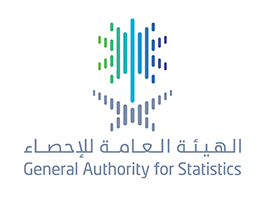
معدل التضخم في المملكة يستقر نسبيًّا خلال شهر يوليو من عام 2023م
Consumer Price Index (CPI) reached 2.3% over July 2023, down from June 2023, remaining relatively stable on a monthly basis for 2023. This stability is due to the strength of the Saudi economy along with the early economic procedures and measures taken by Saudi Arabia to counter the global rise in inflation rates.
It is worth noting that the inflation rates in Saudi Arabia maintain a reasonable standard and balanced rates compared to most countries in the world. During July 2023, the inflation rate recorded a slight increase of 2.3%, compared to the same month of last year 2022.
It is noteworthy that the economies of many countries of the world, including developed countries, have been suffering from sharp increases in inflation rates for several months. Economic experts and analysts confirm that reasonable and balanced inflation rates that any society may witness are part of the dynamism and vitality of the economy in this society and its ability to protect itself from any potential crises. However, unreasonable and unbalanced increase in inflation rates is a negative indicator of the existence of economic recession or serious economic challenges in societies that are witnessing a drop in inflation rates.
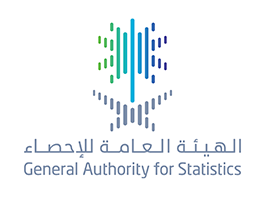
الهيئة العامة للإحصاء: تصدر تقرير عن المرأة السعودية لعام 2022م
The General Authority for Statistics (GASTAT) issued the Saudi Women's Report 2022 today. The report aims to provide many indicators relating to Saudi women aged 15 and above in different fields, such as education, health, sports, and technology, as well as other statistics, relying on available official sources. The sources include data from surveys carried out by GASTAT and data from the administrative register available to other official bodies.
According to the report, young women in the age group 15-19 years old represent the highest number among the other age groups, with 916,439 women, followed by 850,780 women in the age group 20 to 24 years old.
The report showed the leading indicators of the Women's Labor Force Survey, which has seen a marked improvement in recent years as the unemployment rate among Saudi women declined, especially in the fourth quarter of 2022, to 15.4% compared to 2021, 2020 and 2019.
In line with the decline in women's unemployment, the expansion of their economic participation and the increase and growth of their employment in various areas, the ratio of employed women to the population rose to 30.4% from the fourth quarter of 2021, where the rate was 27.6%. Women's participation in the labour market was 36%, up slightly from 35.6% in the fourth quarter of 2021.
According to the report, the number of freelance certificates issued to women in 2021 reached 961,189 compared to 105,518 issued in 2020 and 7,997 issued in 2019, which is the lowest.
The report showed that the stock market had witnessed a great turnout from women recently, as the number of Saudi women investors in the stock market in 2021 reached 1,516,995, which is higher than the previous two years, 2019 and 2020.
According to the report, young women aged 15 years and above engaged in physical activity for at least 30 minutes per week, reaching 38.7% in 2021, the highest percentage compared to 2018 and 2019. The highest age group of women engaged in physical activity for at least 30 minutes a week is the age group 20–24 with 43.13%, followed by the age group 25-29 with 42.88%.
GASTAT is the only official reference for statistical data and information in Saudi Arabia. It carries out all statistical work, as well as the technical oversight of the statistical sector. It also designs and implements field surveys, conducts statistical studies and research, analyzes data and information, and documents and archives all works containing information and statistical data on all aspects of life in Saudi Arabia. It gathers, classifies and analyzes data, and extracts indicators from it.
